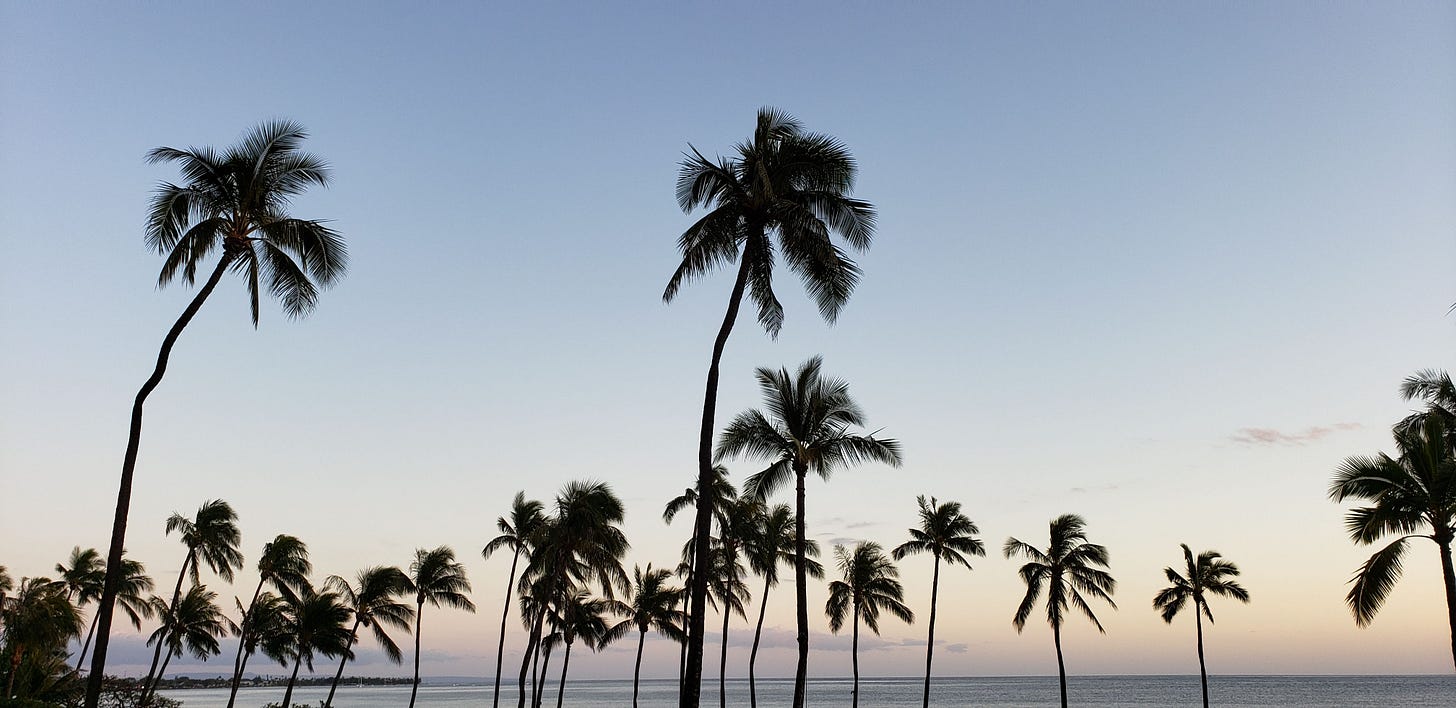Our Obsession with Leisure
What to do when our desire for leisure turns sour.
Most people would say they'd rather work to live than live to work.
Living to work typically conjures an image of someone anxiously toiling day in and day out, unable to savor life’s simple pleasures.
Working to live, however, often makes us think of someone who clocks into their job, works diligently, and clocks out when the day is done. They don’t take work or stress home with them, allowing them to enjoy their evenings and weekends.
When you align yourself with a “work to live” mindset, you value a life of leisure. And you’re in good company.
Greek philosopher Aristotle said, “The end of labor is to enjoy leisure.”
Over two thousand years later, we still exalt all forms of leisure, each more intoxicating than the next.
Today, it can look like an endless supply of quality time spent with family, lazy days at the beach, all-inclusive vacations, spacious homes we can relax in, long drives in luxury cars…
Sounds tempting, doesn’t it?
It’s not that all leisure is bad or sinful. In Ecclesiastes 3:13, Solomon says to “take pleasure in all [our] toil—this is God’s gift.”
Desiring to rest after our work is good—even fruitful.
But our relationship to leisure turns sour when we begin to idolize it.
Because when leisure becomes our ultimate goal, we must ask ourselves what we are willing to give up to get it.
Around my third year of business, I stumbled upon the FIRE movement.
FIRE is an acronym for “Financial Independence, Retire Early,” inspiring followers to prioritize extreme saving in hopes of retiring early.
Since I come from a long line of farmers who were haunted by a spirit of scarcity, this financial movement made sense to me. I was taught to live below my means, often wearing it as a badge of honor. I had already saved enough money for a rainy day, so the idea of building my savings around the goal of an earlier retirement seemed like a natural fit.
I started listening to FIRE podcasts and reading any article I could get my hands on.
Most of them featured everyday millionaires in their 30s and 40s who had successfully retired early by saving and investing their money wisely. No longer feeling the pressure of working for a paycheck, they were finally free to explore and do whatever their hearts desired.
After six months of going all-in, I found myself thinking about money constantly.
On the surface, the FIRE movement seemed like a smart way to live frugally and fight off greed, but the opposite was happening.
It warped my discernment and kept me hyper-fixated on how I spent every dollar and every second of my life.
It robbed me of peace and joy, making me feel like I would never have enough money or time to reach my audacious goal.
It promised the illusion of control, yet I had never felt more out of control.
In my pursuit to gain knowledge, I forfeited the wisdom found in God’s Word.
Thankfully, it was also during this time that I found myself increasingly drawn to Ecclesiastes. Its author is Solomon, a man who asks God for wisdom (1 Kings 3). By applying this wisdom, he amasses a fortune that would be valued at around two trillion dollars today.
This wealth allowed Solomon to test himself with every pleasure. In chapter two of Ecclesiastes, Solomon recalls enjoying many leisurely days and earthly pleasures most of us could only dream of. This includes planting vineyards, building many houses, gathering gold and silver, and having his fill of food and wine.
But this is the same Solomon who continually refers to life as a “meaningless vapor” throughout Ecclesiastes —38 times, to be exact.
Why does one of the wealthiest men in history say that life is fleeting, like a wisp of smoke, here today and gone tomorrow? By tasting every pleasure, he understood nothing outside of God could satisfy him.
“I kept my heart from no pleasure… Then I considered all that my hands had done and the toil I had expended in doing it, and behold, all was vanity and a striving after wind, and there was nothing to be gained under the sun.” Ecclesiastes 2:10-11
I soon realized that my growing obsession with leisure—whether gained through financial independence or early retirement—was not only unwise but also unbiblical.
In his exploration of the relationship between work and rest, John Mark Comer—whom I affectionately call “JMC"—writes in Garden City about the woes of early retirement.
“It’s striking to me that a number of people I know who made a bunch of money and retired young are unhappy… It’s like they lost something central to who they are.”
In other words, a life defined by leisure will never satisfy us. Instead, we are invited into a countercultural worldview where rest and work are equally valuable.
When leisure is out of balance, we become slothful and apathetic. When work is out of balance, we become greedy and prideful.
But when rest and work are interconnected, feeding into one another as God intended, we prosper.
Our goal shouldn’t be to eliminate work from our lives for the sake of gaining more leisure. JMC says, “When we stop working, we lose a part of who we are.”
What if we began to see work as a part of our becoming?
Yes, even our toilsome, gruntworthy work deeply matters to God.
We may be tempted to overvalue leisure, but these wise words from Elisabeth Elliot, a true titan of faith, point us to a healthy perspective on leisure.
“The enjoyment of leisure would be nothing if we had only leisure. It is the joy of work well done that enables us to enjoy rest.”
We can’t enjoy leisure without engaging in the good work God has called us to do.
Today, let’s thank God for both the work and the rest He designed.
A moment to reflect
What forms of leisure feel most intoxicating to you? What are some of the indicator lights in your own life that signal when your desire for leisure is becoming too great?






Reading this while my 2-months-old naps on my lap. I value these still quiet moments long enough for me to cross off a few things on my list, only because I know how exciting it will be to have her wake up again. If all she did was sleep, her nap times would not be that much of value to me.
This is such a beautiful way to remind us that while leisure is a gift, it wouldn't have much value if we never had to work. Thank you so much for taking your time to continue to encourage your readers. I am once again inspired by your writing. I pray that through each season of life, we would not become a gluttony of leisure or an idolizer of work. But that we would be intentional in finding balance and to remember that both can be a form of worship when they are not out of order.